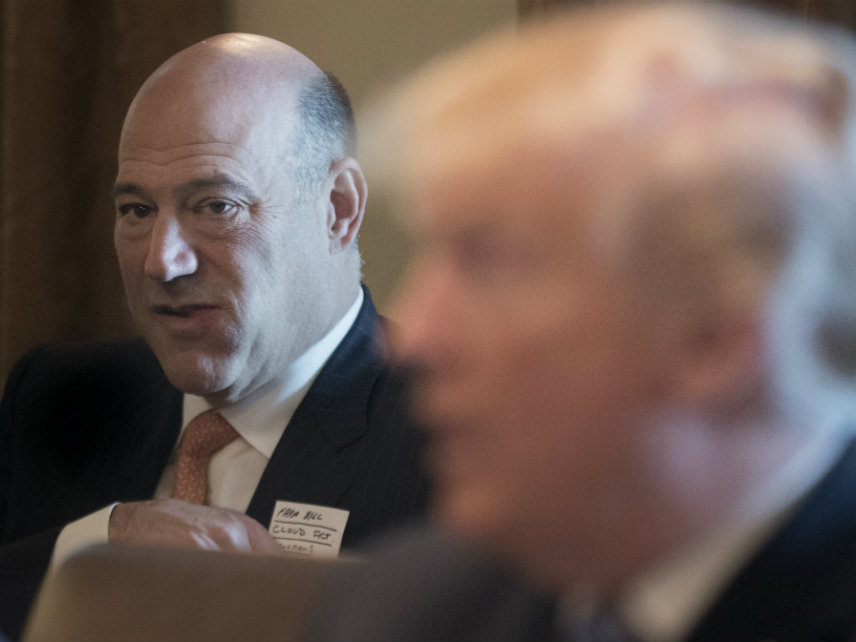Trump's Former Top Economic Advisor Blasts White House's Tariff Plans
"We should buy from them what they're good at; we should sell to them what we're good at," says Gary Cohn, who left the White House in March.

In his first interview since leaving the White House in early March, former top economic advisor Gary Cohn criticized President Donald Trump's plan to impose tariffs on steel, aluminum, and thousands of Chinese-made goods.
"I believe that we are very good at doing certain things in the United States. Other countries are very good at doing different things," Cohn said during a Tuesday interview on CNBC. "We should buy from them what they're good at. We should sell to them what we're good at."
That opinion apparently clashed with the economic nationalism that has taken hold in the Trump administration. It was widely reported that Cohn's opposition to tariffs provided a bulwark against Trump's demands for protectionism back in 2017, but that the disagreement over trade policy eventually led to Cohn's resignation. Just days after he left the post, Trump announced a 25 percent tariff on imported steel and a 10 percent tariff on imported aluminum. Those tariffs have already caused prices to rise and harmed American businesses.
Cohn seemed to confirm those disagreements, describing himself Tuesday as "a free trader" and "a globalist" who is firmly anti-tariff.
Cohn is hardly the only advisor whose opinion has been cast aside by Trump in his quest to reshape American trade policy. The president has steamed ahead with tariff plans despite warnings from members of his own party in Congress, opposition from trade groups, and some strong signals from the stock market. Last week, a group of more than 1,000 economists sent a letter to the White House and Congress urging the removal of barriers to trade. Foreign governments have threatened to respond to Trump's tariffs by targeting the free trade of American agricultural goods, amoung other things. It's been good news for lobbyists, but that's about all.
While Trump has softened a bit on the steel and aluminum tariffs—he has granted temporary exemptions to several major U.S. trading partners, giving them until June 1 to reach bilateral deals with the United States—he's still pursuing additional tariffs on some 1,300 Chinese-made goods. The Office of the United States Trade Representative is currently mulling those proposed trade barriers.
Cohn echoed the concerns of business and trade groups, which have signaled that Trump's tariffs may undo some of the economic good will created by the tax cuts passed in late 2017.
"I don't like the tariffs. I don't think we want the steel and aluminum prices going up," Cohn said. "People are concerned that the economic policies of Washington are not as clear this year as they were last year."


Show Comments (68)